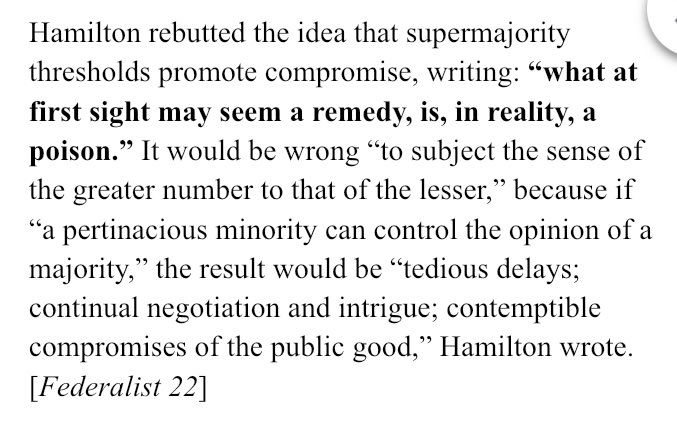
The Senate was designed to give the minority input, but the Framers rejected a supermajority threshold because it gives the minority a veto. Madison wanted the minority to have a voice, Calhoun wanted a veto. Manchin is defending Calhoun's vision of the Senate, not Madison's.
https://twitter.com/CuomoPrimeTime/status/1390116579535433728
Madison called majority rule the “republican principle” and said that a supermajority threshold would cause “the fundamental principle of free government to be reversed. It would be no longer the majority that would rule: the power would be transferred to the minority.” 



Hamilton said that while you may think a supermajority threshold promotes compromise “what at first sight may seem a remedy, is, in reality, a poison.” The “real operation” of a supermajority threshold is to “embarrass the administration, to destroy the energy of the government.” 



Calhoun had a different view. He thought the minority should have a veto- what he called, in his Disquisition on Government, “a negative on the others.” The Senate Manchin is defending has shifted away from Madison’s vision and fully embraced Calhoun’s vision of a minority veto. 

• • •
Missing some Tweet in this thread? You can try to
force a refresh




